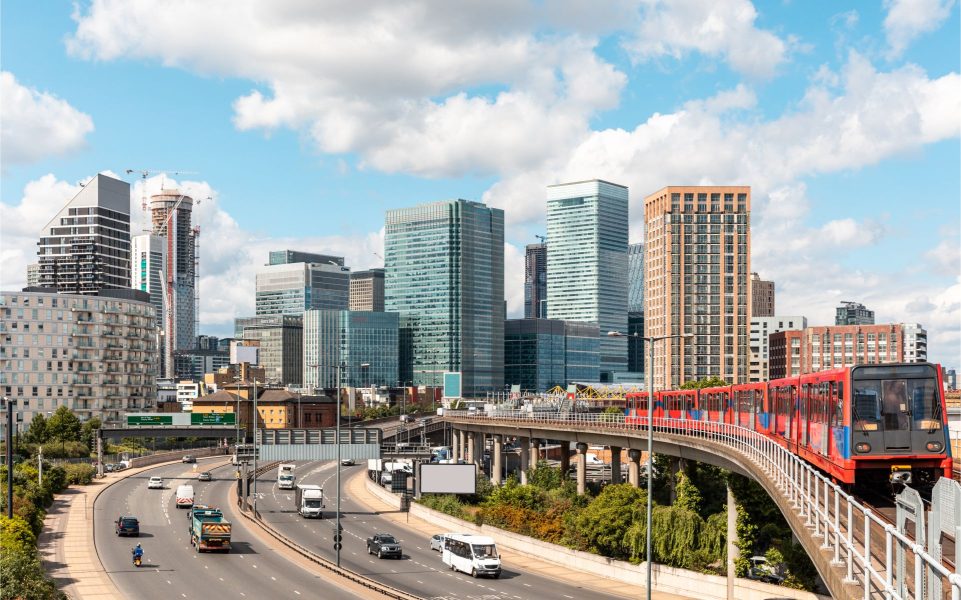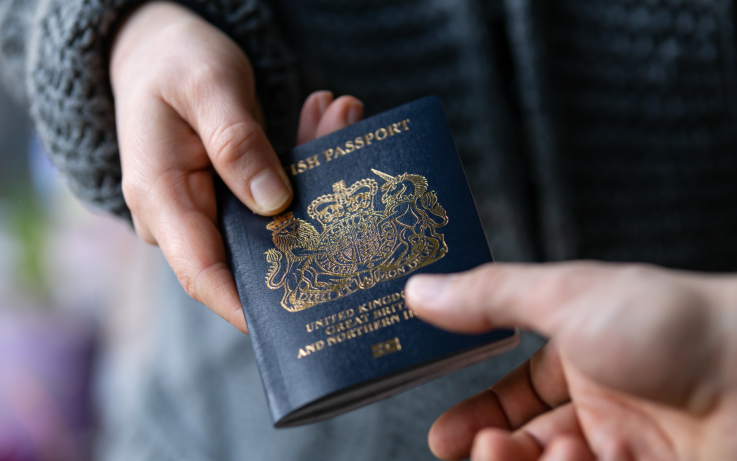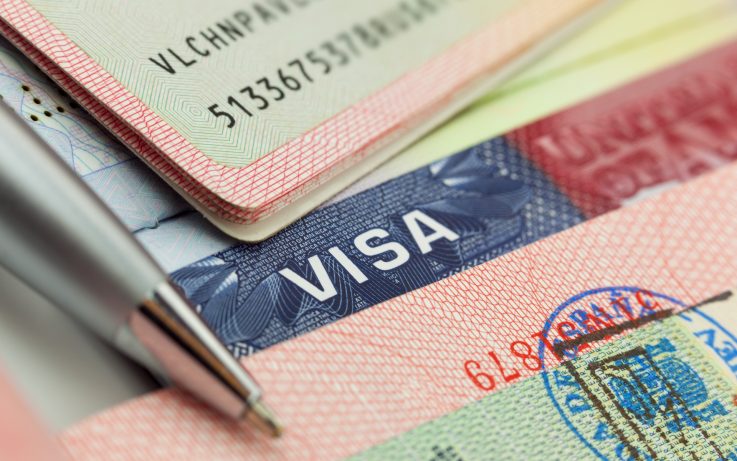Temporary and indefinite leave to remain in UK: Differences and characteristics

The United Kingdom has a unique attractiveness for foreigners thanks to its high living standards, age-long cultural traditions and state-supported stable economy. Those who have experienced the inimitable atmosphere of the UK once, often recall it and dream to get settled here. When you start to plan your relocation, you will find more and more opportunities for business and personal growth in this fascinating country.
A well-selected visa category will help you to succeed in your plans. And if you want, you can become a permanent resident in the UK. That will allow you to get a British passport and with it, even more benefits.
UK Leave to Remain
A foreign national who obtained a temporary leave to remain in the UK can live here for several years depending on the type of long-term visa that secures this right.
Depending on the purpose of your stay in Great Britain, you can choose between various visa categories. The most convenient and sought-after relocation visas are work, education and family schemes.
Leave to Remain For Businesspeople And Workers
On 13 April 2023, the Home Office launched the Innovator Founder Visa route. It replaced two previous visa categories: the UK Start-Up Visa and the UK Innovator Visa. Like the previous ones, the new visa offers a chance for young people to promote their progressive ideas and research in business ventures without initial capital. Innovation can also cover intangible areas such as intellectual property and anything that can be of benefit to society. If your UK business has shown growth for three years, you will be eligible to apply for permanent residence, which is also called indefinite leave to remain (ILR) or settlement.
After the UK closed the sole representative visa route (Representative of an Overseas Business Visa) to new applicants, this visa was replaced by the new one – UK Expansion Worker. This new category facilitates the opening of a representative office in the United Kingdom, but it does lead to ILR. A company’s executive can move to the UK on this visa and if their business succeeds, they may get a chance to switch to another work visa, for instance, a Skilled Worker Visa, which leads to settlement in 5 years.
If your knowledge and skills are in demand in the UK, a Skilled Worker Visa is for you. This applies to scientists, professors, healthcare professionals, managers, fire officers, social service workers, and other important specialists of various occupations. A full list of occupations can be found here. If you do not know your job’s occupation code, you can search for your job in the ONS occupation coding tool.
A UK Global Talent visa route was opened on 20 February 2020 and replaced the Exceptional Talent Visa. You will be surprised when you see how many talented people of various occupations can achieve their dreams by moving to the United Kingdom on this visa. You can apply for settlement after 5 years of stay in the UK (in some cases even after 3 years).
Leave to Remain for Investors
On 17 February 2022, the Tier 1 Investor visa was closed for new applications and only remained available for existing visa holders. Among the advantages of this visa, there was an opportunity to get ILR early – in 2-3 years, depending on the amount of investment in the British economy.
Leave to Remain: Student Visa
If you don’t have enough experience to participate in the work immigration schemes, but you want to get a degree and immerse yourself into the British way of life and improve your English, then you can apply for a student visa and earn a recognised British degree. The most suitable for this purpose is a Tier 4 Student visa; it is granted for the whole study period plus four months. Your spouse and children under 18 can relocate together with you.
Leave to Remain: Family Reunion
For a foreigner who is getting or is married to a UK citizen or settled person, there are several family visa categories:
- UK Spouse Visa (including same-sex spouses);
- UK Visa for unmarried partners (including same-sex partners);
- Fiancé, fiancée and proposed civil partner visa.
The first two visa categories allow you to apply for settlement in 5 years and a year later, if all conditions are met, apply for UK citizenship. A UK fiancé, fiancée and proposed civil partner visa, however, is only issued for six months during which the partners must get married and apply for a UK spouse and civil partner visa from inside the country.
There are also two cases when a family reunion with a UK citizen and UK permanent resident is possible:
- their children and parents who are citizens of another country;
- other members of their families who need health care.
In such cases, relatives can apply to the Home Office for a leave to remain for a period of 2 years and 5 months, with an option to extend.
After 5 years of stay in the UK, in full compliance with all the immigration rules of the above visas, you apply for the UK indefinite leave to remain. Please note that on these family visas, in case you do not meet all the requirements, you still have the right to apply for UK settlement after a 10-year stay in the country.
Foreign citizens with a UK visa, or leave to remain, can enjoy many benefits:
- Access to nurseries, state and public schools, and universities for their children.
- Right to leave and return to the UK when needed.
- Free quality healthcare on a par with the UK citizens and residents.
- Rent and purchase of real estate.
- Opening a bank account.
- Obtaining a driver’s licence and buying a car.
Differences Between Temporary and Indefinite Leave to Remain
Temporary visas have many advantages, but all of them are limited by the visa validity. Some visas can be extended after the end of the first term or switched to a different visa category. If you have a biometric card, you will need to renew it when required. At the same time, the UK’s permanent residents are outside of immigration control.
A long-term British visa imposes restrictions when it comes to changing the type of activity you are allowed to do on it. For example, if you hold a UK student visa, you cannot neglect your studies for the sake of full-time employment. If you have an Innovator visa, you need to spend most of your working time involved in a project endorsed by a special authorised body. If you do not comply with this requirement, you risk losing the endorsement and being forced to leave the United Kingdom before your visa expires. This type of visa allows you to get another job to cover your living costs. When you move to the UK on a family visa, your relationships with your UK spouse or civil partner are expected to be happy, genuine and long-term.
Permanent residence status fully removes the holder from under immigration control, giving them the right to do whatever they want and what they have always dreamed of, such as continuing their studies, changing jobs, starting their own business, or maybe just taking a break.
UK Permanent Residence
Immigrants who have obtained an Indefinite Leave to Remain (ILR, settlement) have the following options:
- They can live outside the UK for a long period, but not more than two years, and come back freely.
- They have the right to choose where they wish to settle down and to travel freely across the United Kingdom.
- They are allowed to vote in local and Scottish Parliamentary elections.
- They can devote their time to study, work or even do nothing.
Permanent residents are granted almost the same rights as UK citizens, except for the ability to apply for public office.
To obtain UK ILR, you must take into account the requirements of your visa from the very beginning and follow them. When applying for settlement, you must provide information on days of absence from the UK. For all business and work visas, your absence must not exceed 180 days in any 12-month period. As for UK family visas, rules and time limits for your stay in England are different.
If in the future you plan to apply for UK citizenship, then for five years before applying, you must make sure you comply with all the conditions of your stay in the UK. You will need to plan your business schedule so that you do not leave the country for more than 90 days a year. That is, you have 450 days to travel to other countries during the 5 years until you apply for citizenship status. If you are married to a British citizen, only the last 3 years before applying for citizenship will be counted. This means that you can be absent from the country for no more than 270 days in total and no more than 90 days outside the UK in the 12 months prior to submitting the application. Besides, in most cases, non-compliance with UK criminal or immigration laws will prevent you from obtaining ILR.
Do not forget about a few important visa conditions. For example, if you hold an Investor visa, you cannot withdraw funds from the invested amount. Work visa rules allow you to change employers only if the Home Office approves it. The Innovator Founder visa requires the business to be successful to be extended. As an expansion worker, try not to interrupt your employment contract to avoid your visa being cancelled. If you divorce a UK citizen or UK permanent resident you will have to leave the country.
Speaking of English language proficiency, it should be at least intermediate or B1 level according to the European classification, and it is an important requirement on the way to permanent residence in Great Britain. This level proves you can keep up a conversation, discuss different topics and express your thoughts in English.
Above that, you will also need to take the Life in the UK test. Being freely available online, the 24 questions are easy to prepare for.
Moreover, applicants for UK settlement have to watch the total amount of time spent in the country:
- Spouses, unmarried partners, including same-sex partners, and relatives of a British citizen or settled person must live in the UK for a minimum of 5 years.
- Foreign investors, entrepreneurs, and employed professionals, including their family members, can apply for ILR after several years of living in the UK. This means that for most types of visas, this period will be equal to 5 years, but it is possible to start the process earlier. How much earlier depends on the requirements for each category of visa, for example, the success of the business or the amount of investment in the British economy.
If you have been in the United Kingdom for a long time on a few different visas or your visa does not lead to permanent residence, then after ten years of continuous legal stay in Britain, you will have a chance to apply for ILR.
ILR Disadvantages
Indefinite leave to remain does not permit visa-free travel around the world; this is available to UK citizens.
ILR application costs a lot. In case of a refusal, it is not refundable. Therefore, collect all the necessary documents carefully. Besides, professional immigration advisors can shed light on all ambiguities and specifics of the UK legislation.
Citizenship By Naturalisation
Many immigrants do not stop at UK ILR and apply for British citizenship. To do this, you will need letters of recommendation from at least 2 people who live in England permanently and have known you for at least 3 years. You must have lived in the UK, with permanent residence status, for at least 5 years plus another 1 year. If you got your ILR earlier thanks to your visa, then you will be able to apply for UK citizenship after 5 years. A spouse of a British citizen can proceed to naturalisation immediately after receiving ILR.
Moving to another country is a responsible and serious matter which is always better in the hands of experienced professionals. Regulated immigration advisors provide advice on complex issues and support in the preparation of all necessary documents.
FAQ About Leave To Remain, ILR, And UK Citizenship
Is it possible to lose ILR and UK citizenship?
If you are granted permanent residence or UK citizenship after submitting false documents or information to the Home Office, all your previous statuses will be annulled. Family members who were granted their status as your dependants will also be affected. To avoid such unpleasant situations, it is enough to:
- Make sure that all the information you provide about your background and that of your family is genuine.
- Integrate into the societal fabric, for example, by enrolling your child in a local school.
- Remember to pay all necessary bills on time and network outside your circle of friends.
- Not to leave the United Kingdom for more than 2 years to avoid losing your permanent residence status, otherwise you will have to apply for it again.
- Not to commit crimes.
How to successfully pass the Life in the UK test?
This test must be taken by all able-bodied foreign nationals from the age of 18 up to the age of 65. There are over 30 specialised government centres across the UK that conduct this test, provided you make an appointment and pay £50. You are given 45 minutes to answer 24 questions about everyday life in England. Be reassured that even UK residents would struggle with some questions, but you could make it easier by preparing online. If you fail the test, you will have the chance to retake the test in 7 days after paying another £50.
What is the difference between ILR and British citizenship?
At first glance, it may seem that UK permanent residents are almost equal in rights to native British people – they can live, work, study, use healthcare services, claim social benefits, and vote in the UK. Permanent residence allows you to stay in the UK for a long time, especially when the immigrant’s home country prohibits dual citizenship.
If you leave the UK for more than two years, you will lose your ILR. However, as a British citizen, you can leave the UK for as long as you want and still retain your UK nationality. Lastly, the holder of a British passport can freely visit almost 190 countries worldwide visa-free.







